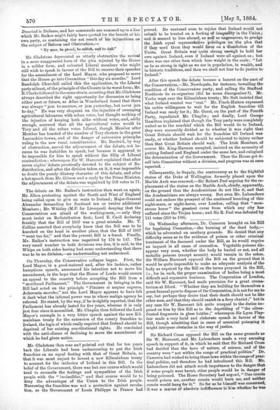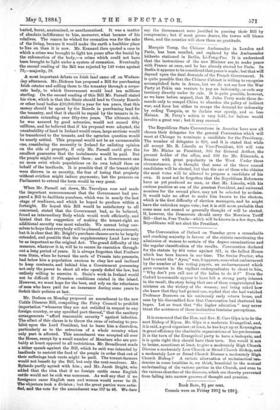Sir Richard Cross opposed the Bill on the same grounds
as Sir W. Harcourt, and Mr. Labouchere made a very amusing speech in support of it, in which he said that Sir Richard Cross had decided that the laws of nature, of science, and of the country were "not within the range of practical politics." Dr. Cameron had wished to bring these laws within the range of prac- tical politics, and therefore he had introduced this Bill. Mr. Labouchere did not attach much importance to the danger That if some people were burnt; other people would be in danger of being poisoned. The Home Secretary had argued, "One cousin would poison me, another cousin would burn me, and neither cousin would hang for it." So far as he himself was concerned, it was a matter of absolute indifference to him whether he IMO
buried, burnt, anatomised, or anathematised. It was a matter of absolute indifference to him, moreover, what became of his relatives. The reason he wished for cremation was for the sake of the living, because it would make the earth a healthier place to live on than it is now. Mr. Kennard then quoted a case in which a crime was brought to light ten years after the burial by the exhumation of the body,—a crime which could not have been brought to light under a system of cremation. Eventually the second reading of the Bill was rejected by 149 votes against 79,—majority, 70.



































 Previous page
Previous page